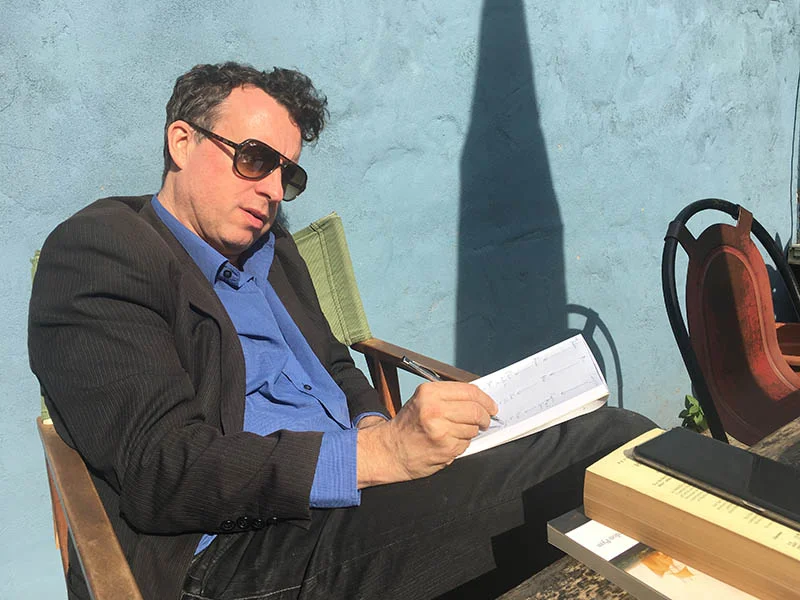Part 1: Mary Finsterer talks about beginning her new opera and working with librettist, Tom Wright.
Troy Beer interviews Mary Finsterer about her new opera, Antarctica.
TB: What is your idea of an opera?
MF: The most important aspect to me about an opera, is the telling of a story; and that story is something that we can all relate to. That is why we go to an event. We go to the opera collectively, as a group to witness a story that we all connect with in two ways:
on a personal level and culturally. In some way, it links us all to a sense of belonging to something bigger, a tradition or culture, a legacy, a history; and in saying that, it is also something upon which we can reflect and perhaps carry with us into the future.
TB: What is special or exciting about writing an opera?
MF: I can bring to the medium those ideas that are important to me personally.
I am able to tell a story in a particular way. Stories for me are a way that enable us to connect with what it is to be human; and what we aspire to as individuals. They help us to consider our reason for being or living. Opera is an ideal medium in terms of conveying message. Being interdisciplinary, it is able to translate meaning through symbols and metaphors. Through spoken and sung text, stories can exist on many different levels simultaneously. So, it’s an incredibly powerful and versatile medium. Opera is often regarded as old-fashioned, but for me it’s not old-fashioned. Opera is what you make it. Essentially, you’re looking at a medium that has existed for centuries, but how do we re-invent that medium? How do we actually make that medium relevant to us, and have meaning for us? It’s not the medium itself that I feel is the problem. For me, it’s about how we’re thinking about the medium. It’s only limited by our imagination. And so, as a composer, I believe it’s my responsibility to explore that.
TB: How does the libretto inform how you think about the opera in terms of the music?
MF: Well, in many ways, the libretto parallels the music in the sense that you can convey messages and meanings through different layers of material. It’s important to me to work with a librettist who can think across different levels, who can embed in the material symbols, meanings and metaphors that not only can underpin a structure but that can also play out in the moment-to-moment realisation of the action. That’s why it was really important for me to find a librettist that I could talk to in this way. Tom has an ability to think on many different levels simultaneously. His knowledge of literature throughout history is immense and because of that, he’s able to bring literary references into the story and in doing so, he is able to give a sense that we are part of a bigger picture, of a cultural lineage. And for me this is really important, that we can reach back in time, reach back into history, back into our cultural roots and bring them to the fore, reinventing them in some way.
Tom Wright at work
So, there’s that, but there’s also his ability to understand the language of Latin and he has an astonishing knowledge of Latin literature. And so, because I’m interested in Latin and in the Renaissance, a time where we had an explosion of thought and creativity across all fields ranging from art, music, philosophy, science, on and on, for me, the music of this time exudes a spirit that encapsulates a well-spring of discovery and adventure. I try to channel this spirit in the work; all of the strains of thought that ultimately lead to that point that is known as the Renaissance.
